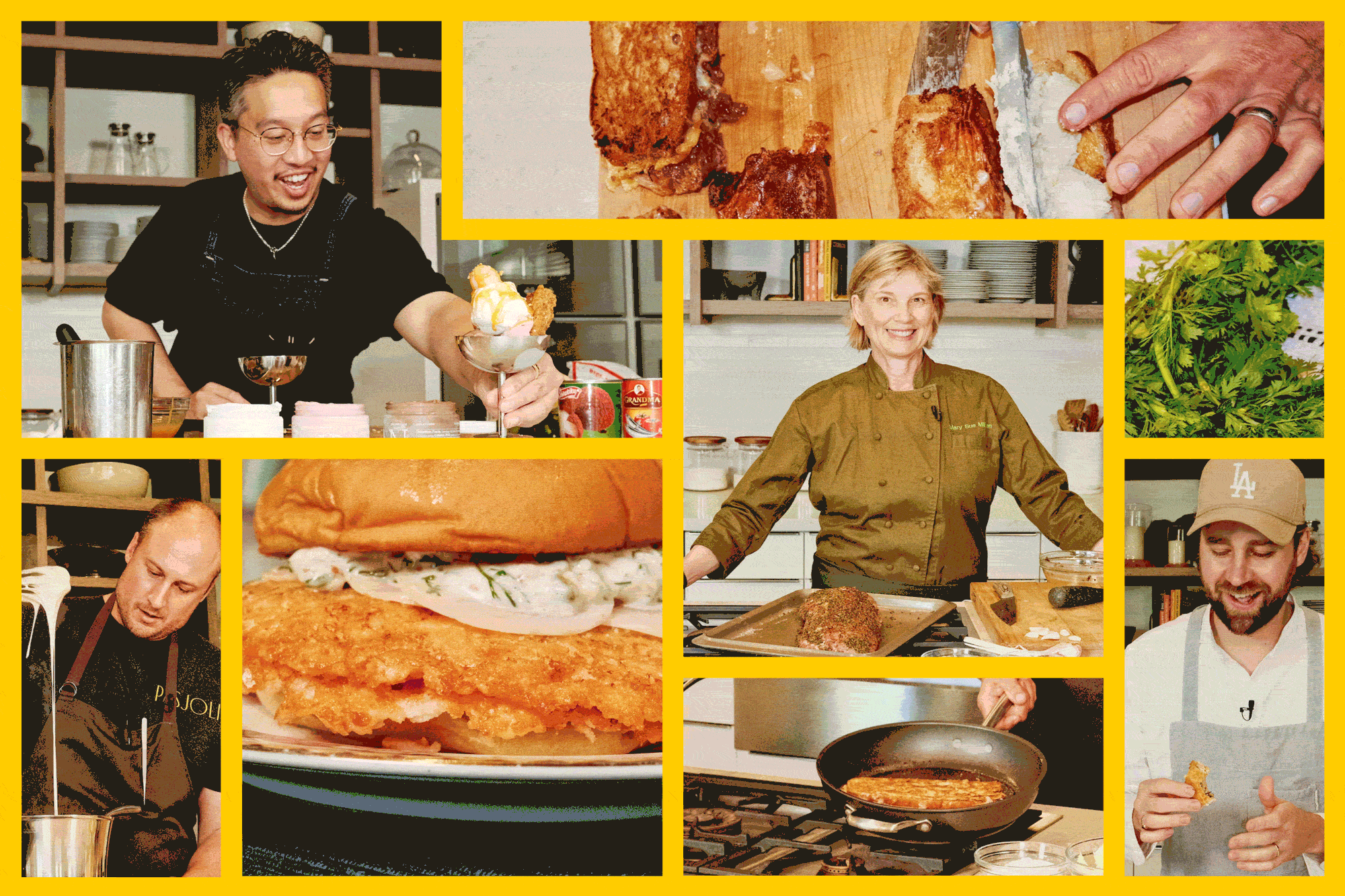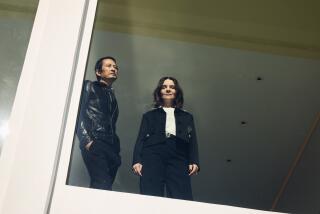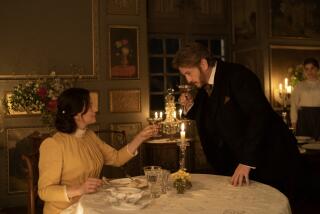Review: Feast on the adoring new Julia Child documentary, the tale of a life well-lived
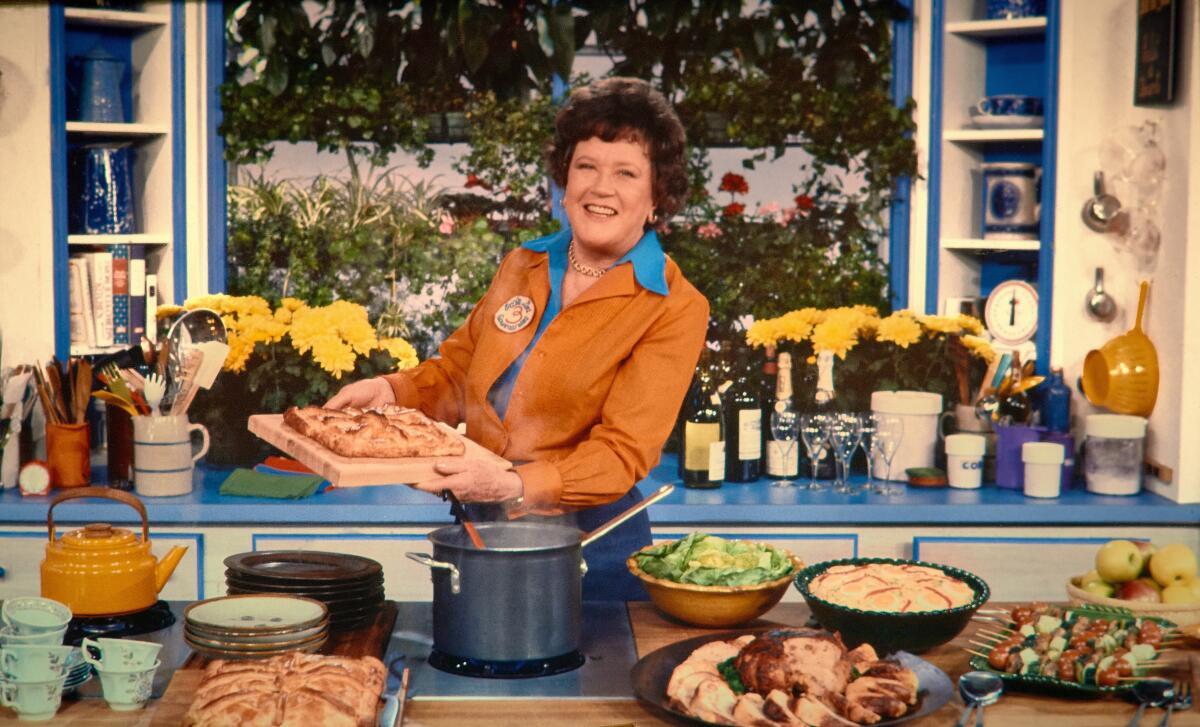
The Times is committed to reviewing theatrical film releases during the COVID-19 pandemic. Because moviegoing carries risks during this time, we remind readers to follow health and safety guidelines as outlined by the Centers for Disease Control and Prevention and local health officials.
Finding yourself is no small task. But then finding a way to turn that epiphany into a revolution of joy and empowerment for others is why the story of Julia Child, who died in 2004, is such an invigorating and resonant one across many realms: food, feminism, entertainment, even love.
Our current feel-good documentary era lionizing beloved lives was bound to come around to the Pasadena native and culinary icon, whose vibrant personality, seminal cookbooks and groundbreaking PBS show were instrumental in establishing food as a pleasure discipline no less vital than art, literature and music. In fact, the new documentary “Julia” comes at a time when Child’s gastronomic legacy is still very much on America’s mind, having already centered a handful of written biographies, a Meryl Streep movie portrait (the Nora Ephron film “Julie & Julia”), and an upcoming series on HBO Max.
The tall epicurean superstar with a voice like an oboe d’amore in flight is ideal subject matter for filmmakers Julie Cohen and Betsy West, the team behind the Oscar-nominated “RBG.” Or better yet, ideal for the type of easygoing, enjoyable canonization they’ve perfected, built more to emphasize strengths over what makes someone complicated. That may make “Julia” inspiring in perhaps only a well-trod way. But as breezy primers go in a life that’s as full as it gets, this collection of the archival and the anecdotal, with the occasional preparing of dishes as mouth-watering interludes, is decidedly more feast than fast food.
Confidantes and family speak to Child’s well-heeled, conservative upbringing, and how quickly she jettisoned its constrictions when she started traveling after college, first as a World War II-era typist, then as the wife of diplomat Paul Child, whose assignment to Paris in 1948 was really her turning point.
First, she wanted to learn how to make the technically precise, rich meals she’d come to love, which made her a chromosomal anomaly in France’s macho teaching kitchens. Then, she wanted to impart that knowledge in a comprehensive tome for Americans that spared neither detail nor passion. “Mastering the Art of French Cooking,” written over 10 years with Simone Beck and Louisette Bertholle, became a publishing touchstone, inspiring a generation of adventurous home cooks to transform supermarket goods into the stuff of fine dining.
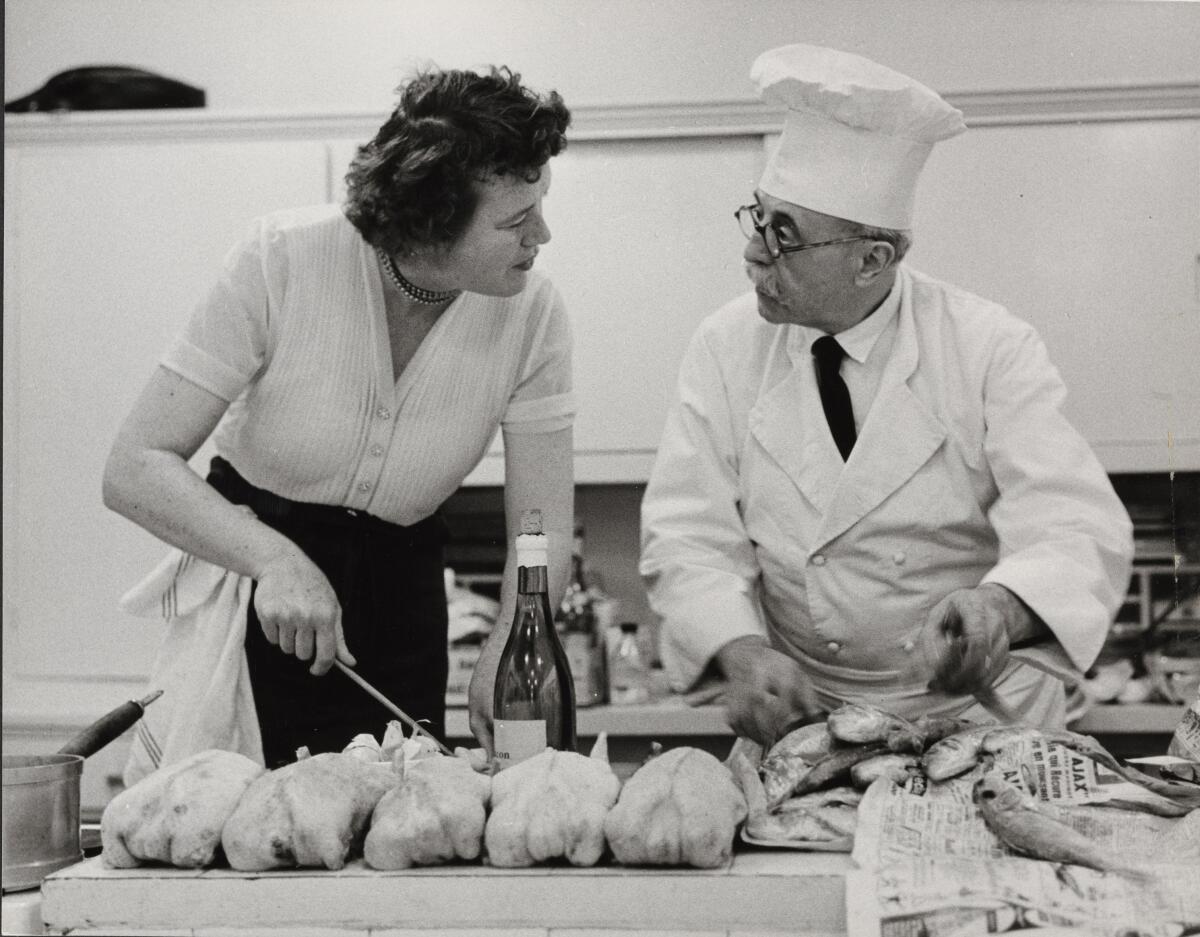
The documentary achieves liftoff, however, with the story of her media fame. That’s partly to do with a gripping narrative about early television, and how scrappy production ingenuity helped showcase a sharp, fearless talent’s reinvention of a format. But also because it’s when linear documentary storytelling dependent on photos and interviewees can give way to what we see for ourselves: a total natural. In all the wonderful clips from “The French Chef” and beyond is the eccentric, earthy star quality of her ardor: the rollicking excitement, the brushed-off mistakes, the flirtiness and humor and, above all, her abiding love for celebrating what never ceased to nourish her soul.
“Julia” also sweetly fills out the arc of her marriage, a source of support for her to the very end. Paul’s own mysteries of behavior aren’t ignored, but in ribbons of text excerpted from their letters and diaries, in observations offered up by those who knew them, and augmented by the more lushly romantic strains of Rachel Portman’s score, “Julia” makes clear how deeply committed he was to helping the love of his life to succeed. The totality of what they meant to each other is quite moving.
Had the filmmakers spent more time with what a changing food/cultural/political landscape meant to a pioneering superstar from a different time, “Julia” might have had a stronger final act than its checklist of topics superficially addressed, whether it’s her orneriness about feminism and healthier food trends or how she kept working into her 90s. In its familiarity, “Julia” is one of those documentaries in which adoration prevents straying too far from the core of what made her remarkable, important and lasting. Then again, the old recipes, with all that butter, have been known to satisfy.
'Julia'
Rated: PG-13, for brief strong language/sexual reference, and some thematic elements
Running time: 1 hour, 34 minutes
Playing: Starts Nov. 12, The Landmark, West Los Angeles; AMC Sunset 5, West Hollywood
More to Read
Only good movies
Get the Indie Focus newsletter, Mark Olsen's weekly guide to the world of cinema.
You may occasionally receive promotional content from the Los Angeles Times.
